The Island
A Short Story of Love
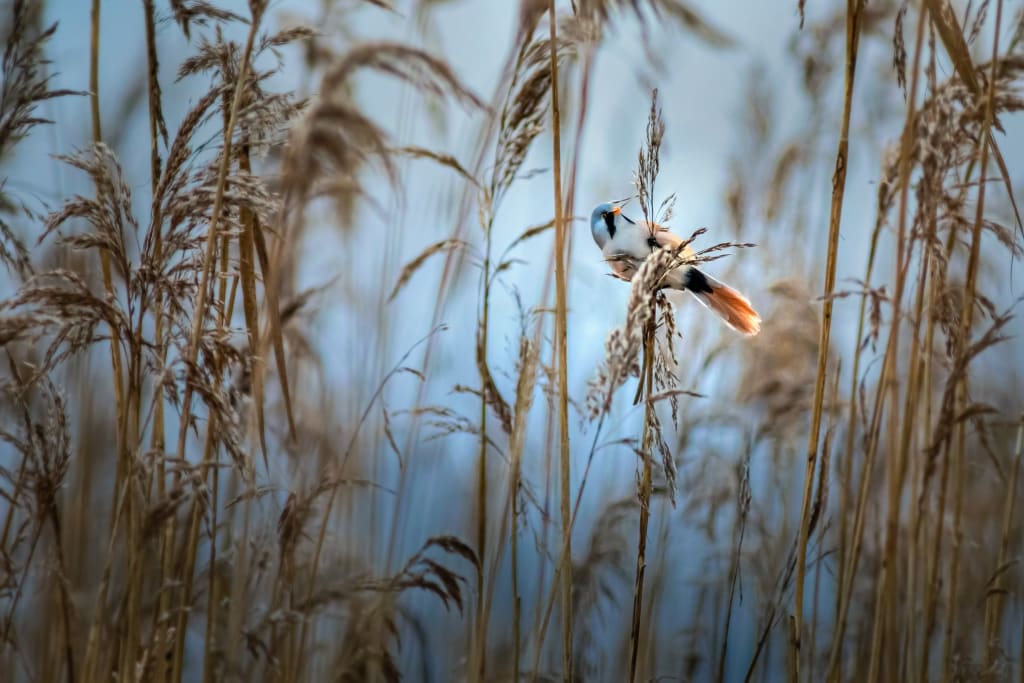
A slowly growing awareness of gray light, damp morning air on my face, shirt sticking to my back… Where am I? Oh. Right. The cottage. Okay. Must’ve fallen asleep on the porch, in the old armchair… God, I think every muscle in my body must be stiff.
Rachel and I drove down last night after work. It rained all the way. We didn’t get here until almost midnight; Rachel went straight to bed. I stayed up, tried to tune in something on the black and white Motorola but the storm must have interfered; images distorted, doubled, overlapped, and then disintegrated into static.
I unloaded the car during a downpour, got soaked to the skin. Then I opened a beer and sat out on the screened porch, hoping the evaporation from my shirt would cool me. Lightning flashed over the bay, through the pines in front of the house, leaving afterimages in my eyes. I had another beer and killed half a joint I’d started on the way down. Then I must’ve drifted off to sleep, and dreamed: I was swimming to the lighthouse, in a storm, a crashing gray chaos of foam, dark water and wave. I lost my way. I looked all around but couldn’t see it because the light wasn’t on; it wouldn’t come on for me. I floated then, treading water, turning in the waves looking for a lighthouse that wouldn’t light.
God, that’s the last time I’ll sleep in wet clothes. The rain had stopped sometime during the night, but the clouds still hang low, sullen over the pines. The air’s so thick with humidity it makes my chest hurt.
I go inside and put on coffee, get my overnight bag, and then shower, standing under the warm water until it runs cold. Rachel’s in the kitchen when I come out, splashing coffee into her mug. She gives me a tired smile as she pours mine. She always seems tired, lately.
“What happened to you last night?”
“I went out in the rain to unload the car” I tell her. “Then I sat out on the porch to let my shirt dry. Guess I fell asleep in the chair.” She just nods and sips at her coffee; she isn’t fully awake yet. After a second cup she goes for a shower, I tell her I’ve used all the hot water.
“Just what I need”, she says, “a cold shower.” She shuffles towards the bathroom, slippers scratching on the floor. It’s the sand that scratches. You can’t walk in this place without walking on sand. It gets blown in, tracked in, carried in on towels, and you can never get rid of it. No matter how often you sweep there’s always that one bit you missed, that one elusive grain wearing away at everything.
I take my coffee to the porch and sip at it while I look out through the screened windows. Most of the island is covered by pines, with a strip of low dunes and sand beach on the bay side, salt marsh on the other. The lighthouse is at the far end of the island where the North River meets the bay. I can’t see the lighthouse or the bay from here, but I can hear the water, and the wind. There is always wind by the water.
I used to love this place. We came here every chance we had, for cookouts and steamed crabs, iced cold beer, swims in the bay; weekend-long parties. Then on one of those weekends the summer before last, Rachel told me that she was pregnant. We were down at the point, the end of the island that faces the lighthouse, a picnic for two. She was shy when she told me, afraid, maybe, of how I’d react. We’d never talked about children; I’d never really thought about it. Not seriously, at least. But I could tell that she was happy and wanted me to be happy about it too. And I was. It still surprises me, but I was happy, ecstatic even, and I felt my face break into a grin when she told me, the silly, delighted smile of a child who can’t contain his excitement.
We married a few weeks later, set up house in a little rented place. We’d been practically living together anyway, in my apartment, but we wanted something better, something of our own. A two-bedroom house, one to use for the nursery. We didn’t have a lot to spend, none of this was expected, of course, but Rachel decorated that room. Her mother paid for new carpet, paint, wallpaper, and even furniture… the first grandchild, I knew our baby would be loved, and spoiled.
And the books, my God, Rachel must’ve cleaned out the bookstores. How To Teach Your Baby to Read, How to Mother, How to Father (she made me read, too), even a subscription to Modern Parenting. She was determined to be the best parent she could possibly be; I could see that.
“More coffee?” Rachel comes out of the house behind me, sets a mug on the end table by my chair as I wipe my eyes. She looks at me strangely. “Hay fever” I tell her, and she nods. “Oh. I thought the rain would have cleaned some of that out of the air”, she says. She’s wearing her bathing suit, one of my shirts over that, and sits on the lounger opposite and watches me, silently. I hate it when she watches me like this, not saying anything; it makes me feel uncomfortable, like I should do something. But I don’t know what to do. So, I shift in my seat, look out the side windows at the pines that sway in the wind.
“You're going swimming in the rain?” I ask.
“It isn’t raining.”
“But it will.”
“No”, she says, “it won’t. The forecast said this would clear out by noon. And I’m as pale as a ghost, I want to get some sun.” She turns in her seat, put her feet up on the lounger and hugs her knees to her chest. “I want to go down to the point”, she says, almost too softly to hear.
“What?”
“We can take a picnic lunch.”
I look at her, uncertain.
“Like we used to”, she says, but she doesn’t look at me, just stares through the window, hugging her knees and rocking slowly.
I don’t say anything for a few moments, then “You won’t get any sun, you know. It’s too cloudy.”
She looks towards me, her face blank for a moment, and then shakes her head as though waking from a dream. “I don’t know”, she says. “You can get sun even on a cloudy day.”
I carry the cooler, sandwiches and drinks, cold beer for me. She carries towels, sunscreen, and a thin, white blanket that the wind lifts from her shoulders. We walk at the edge of the water on hard packed sand, skirt hummocks of tangled brush eroding into the bay. The waves come in closer than I remember, threaten the line of low dunes that protect the island. A rivulet, a trickle of water, runs from the dunes; this is new since last time we were here. A storm has breached the line, broken through the dunes and flooded the land beyond. It’s a tidal pool now, the pines are already dying, their roots drowned. Another year or two and it will be marsh, choked by the reeds that grow in shallow water. But every storm that comes through will take a little more land with it, deepen the channel, and form an inlet. Eventually it will break through to the calmer bay on the other side of the island, separate this piece of land and make it an island unto itself. That’s how the island that the lighthouse occupies was formed; it was originally part of this island. But gradual erosion, a slow wearing away of the land, and then a storm powerful enough to break through at the weakest point separated the whole into two parts. Now the channel’s a couple-hundred-yards wide.
We spread the blanket at the end of the beach, near where marshes choke the back of the island, and weight it with the cooler. This is as far as the beach goes, as close as we can get to the lighthouse.
Rachel lays face down on the blanket, sunbathing without the sun. The clouds have lifted a little but are still dense enough to keep shadows from being cast, the sky a dull uniform gray. The beach is cleaner here than it is near the cottage; the winds come stronger and more often, scour the sand of the things that foul most beaches, the dead things. The tide sweeps through this channel and keeps the water clearer too; the bottom of the channel can be seen almost twenty feet out, something unheard of in the bay.
I watch as horseshoe crabs make their slow way along the bottom of the channel. Some over a foot long and with tails almost as long; others, younger, are smaller.
I crack open a beer, sit back with my eyes closed and listen to the gulls, faint in the distance. “It does feel good here, even without the sun,” I say. “You were right.”
~ ~ ~
A maple grew close against that first house we rented; it blocked the view from the kitchen window. But it was a beautiful tree, so we didn’t mind. The afternoon sun shone through it and lighted the kitchen with the softest, brightest shade of green you’ve ever seen. Sometimes we sat at the kitchen table after work and talked into the evening, bathed in a deepening green light.
We were sad when the first leaves began to fall, but excited by what autumn was bringing to the tree. It turned red, a fiery, orange red, like the setting sun that inflamed it in the evening. The tree seemed almost to hold the light then, only for a moment, to hold and amplify the light like a stained-glass window. Shafts of fading golden red light filtered through and every leaf seemed to glow from within.

Some of Rachel’s test results came back “unusual” and we were told she might have problems carrying to term. Her doctor insisted we not be too concerned, but we needed to be aware of the possibility.
When I got home from work one day there was a message on the machine from Rachel’s mother, so I called. Rachel was in the hospital, had had a miscarriage and lost the baby. But Rachel was okay, would be okay. I took down the hospital information and was ready to go when Rachel’s mother said, “There’s more. The doctor said she’ll have no children,” and her voice lowered, seemed to quaver a little. “They’ll be no children.”
~ ~ ~
I take a deep breath, open my eyes to the unexpected brightness of gray and look over at Rachel. Sometimes I’m not sure I even know her anymore.
“I want to swim to the lighthouse.”
Rachel raises her head slightly, turns her face to me. “What?”
“I want to swim to the lighthouse.”
She turns over and raises herself onto her elbows. “Are you serious?”
“Yes, I’m serious.” I look at her and wonder if she remembers, knows what I’m talking about.
“You said you’d swim to the lighthouse with me.”
“That was a long time ago,” she says, and I know she means that we were young then, we didn’t know anything. I still don’t know anything.
I stand and walk to the edge, step into the warm water. “Well, if you don’t think you can swim it…” I say, and she gets to her feet.
“I can out-swim you any day,” she says, “and you know it.” I look at her and realize she is Rachel, she’s still the Rachel I knew then. She follows as I wade out waist deep, then turn and fall backwards into the water and when I stand again, I’m chest deep, a steady current tugging at my feet. Rachel is waist deep now, plays her fingertips over the top of the water. “There’s a current”, she says, and she looks towards the island, the stretch of water between here and there. “It looks a lot farther when you’re in the water, doesn’t it?”
I won’t give her a chance to change her mind. I choose a point on the opposite shore, two scrubby pines that are easy to see from the water’s surface and begin to swim. When I look back, she is following and I let her catch up and swim a few yards ahead of me, then I match my pace to hers. She’s a good swimmer, long, smooth strokes to my ungraceful splashing. The only advantage I’ve ever had over her is endurance; I may lack style, but I persevere.
The water grows colder and the current stronger. The tide must still be running out. I look back to check our progress; well over halfway there, but off the planned course, carried by the current without noticing it. When I turn to Rachel again, she’s even further to my left, still swimming forward but being carried faster than ever towards the bay. I call to her, but she doesn’t hear, and I change my course to intersect hers. The third time I call out, she stops and turns to me, her face surprised as she realizes the current is pushing us towards the bay. I point towards the island, indicate an angle across the current and she nods and begins to swim again.
The current continues to grow stronger, the water colder. I swim lower in the water than Rachel and I fight to stay upstream of her. The smaller bay, the source of this current, is really the flooded mouth of the North River. Last night’s storm must have swollen the river and combined with the outgoing tide it has become an onslaught of water, sweeping towards the open bay. Sandbars reach out into the bay from the tips of both islands, breaking the waves, but between them is a smooth, dark stretch of water, and that’s where we’re being carried. When this cold, heavy water passes the sandbars it will follow the slope of the bottom, dropping fast to the floor of the bay. I look for the marker point, the two pines, but I can’t see them: we’ve gone too far off course.
I’m close enough to Rachel to see her face, pale with cold, or with fear. I want to call to her, ask her if she is okay, if she can make it, but I can’t, I don’t have the strength. It’s all I can do to match my pace to hers, to stay upstream and hope that I can shield her from some of the current. She’s lost her stride, her movements are slow, labored, and when our eyes meet, I see fear. She is close to exhaustion. We’re closer to the island but the current hasn’t let up. I know I can make it, but I can’t carry her, I don’t have the strength. I move closer to her, closer to land, but slower, then slower still. She’s barely staying afloat now, and I let the current carry me to her side. I float, treading water with my back to the island, barely moving. I encourage her, urge her on, “You’re okay, Honey. You can do it, we’re almost there.” But she shakes her head, no. I wait for her, and she reaches out for me, fingers touch my skin, a frantic grab for support. I let her pull herself close, her weight on me, I can’t carry her, I’m too weak, and I feel her hands slip from my shoulders as I sink into the current. My foot strikes something and reflex pulls it back just as I recognize sand, the bottom! Both feet touch bottom, sand sweeping from beneath them, I push hard and I’m in the air again, clutching at Rachel. Momentum pulls us a few feet closer to shore and when I go under again, I don’t fight it, let my feet find bottom and push off hard again. We’re a few feet closer to shore now, now I can stand, I can stand! I hold Rachel, take timid steps, baby steps, so as not to lose my purchase to the current.
Rachel can stand now, she doesn’t want to let go, but I push her down until she feels the sand beneath her feet and together, we stand against the current, move towards the shore. We splash onto the beach and collapse on the sand at water’s edge, then lay still for a long while, regaining our breath at the edge of the channel. I feel sick in the pit of my stomach; I could’ve lost her. I could have lost her.
After a while she reaches for me, her eyes still closed, and takes my hand tight into hers. “We made it”, she says, still breathing hard, and then again, as if she could not believe it, “We made it.”
The clouds are breaking up, I hadn’t noticed until now, beginning to stream out over the bay. Without a word we both stand and look towards the lighthouse on the other side of the island, then move toward it. Between the dunes to the interior of the small island, scattered brush on brilliant sand, an easy passage. On the other side we climb over the low dunes and see the base of the lighthouse for the first time. I’m not surprised, somehow, not surprised at all. The lighthouse isn’t even on this island.
It rests on its own little spit of land, hundreds of yards offshore, surrounded by blocks of granite to prevent further erosion. The same process that pulled this island from the main one has pulled the lighthouse from this one, made three islands of one. But the water here is rough, exposed to the force of the main bay, and I know we’ll never swim it; the third and smallest is forever beyond reach.
We sit for a long time in the sunshine, looking at the place I so wanted to reach. We can see detail, this close, detail that was lost in the distance. The walls of the structure are rough, whole sections of white mortar peeling like bark from a tree, exposing the dark, weathered stone beneath. Where there should be glass at the top there’s only open space, and a few bricks of sandstone have fallen from the rim to the rocks below. This place will never be used again; it will never hold light.
We walk back along the beach on the leeward side of the island. The water is calm here, the wind less forceful. The main island comes into sight, the marshes on the river side, and I realize then that the same currents that strip away the layers of earth at this end of the island deposit them at the other. A sandbar will grow into the bay, reeds take hold and stabilize the sand, pines find purchase and turn the sand back into soil. As this end of the island is swept away the other end grows.
We find the two pines I chose as a marker and look across the channel to the main island, to our blanket and cooler, to our picnic waiting there. The wind has died, and the water is calm now, almost mirror-like in its stillness. Across the channel a heron poses in the shallows, its gray feathers flashing blue with sunlight. Blackbirds and Orioles gently sway on the reeds.
I find a piece of driftwood and throw it as far over the channel as I can. It goes under briefly, then bobs to the surface and floats, gently spinning, going neither in nor out. We wade out to our knees, waist, chest but still feel no current, no movement but our own. I dive, the water warm and still, resurface and splash drops that refract the sunlight, sparkling. We’re on the crux, that fleeting, perfect moment when the tide turns, neither coming in nor going out, all forces balanced in perfection. Rachel swims to me, smiles a radiant smile, and I can’t help but laugh, the silly, delighted laugh of a child.
~ ~ ~
This story was originally posted on Medium.
Thank you for reading this short piece and I hope you enjoyed it. I have other stories and poetry written and more to write, along with my thoughts on issues of the day, spirituality, religion, politics, and more. You can subscribe to Vocal using my link and see all new work as I publish it and you can also read the thoughts, stories, and viewpoints shared by thousands of writers. And part of the money from every membership helps us all continue to publish and share our work.
I can also be found on Medium, Simily, Twitter, Facebook, and LinkedIn.
I hope you enjoy my work, and a small tip will help me to continue writing.
About the Creator
Blaine Coleman
I enjoy a quiet retirement with my life partner and our three dogs.
It is the little joys in life that matter.
I write fiction and some nonfiction.
A student of life, the flow of the Tao leads me on this plane of existence.
Spirit is Life.

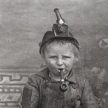
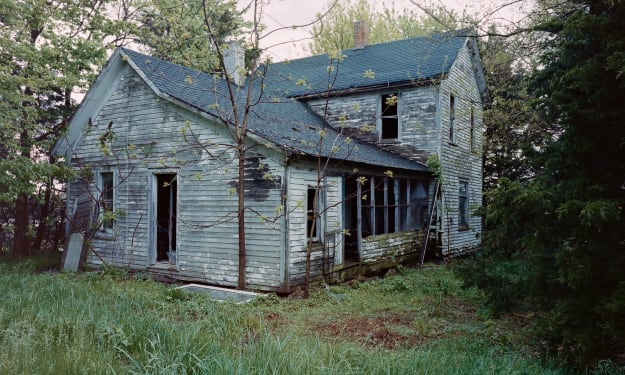
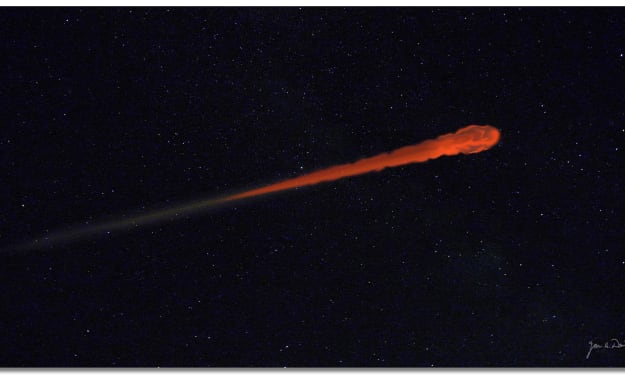
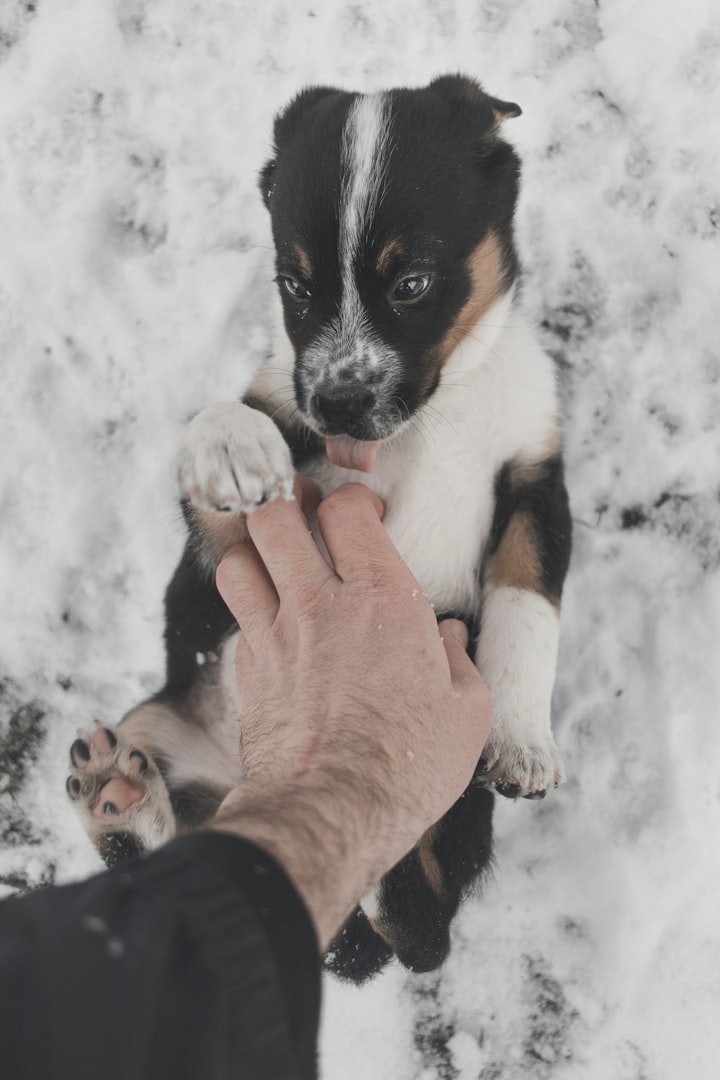

Comments
There are no comments for this story
Be the first to respond and start the conversation.